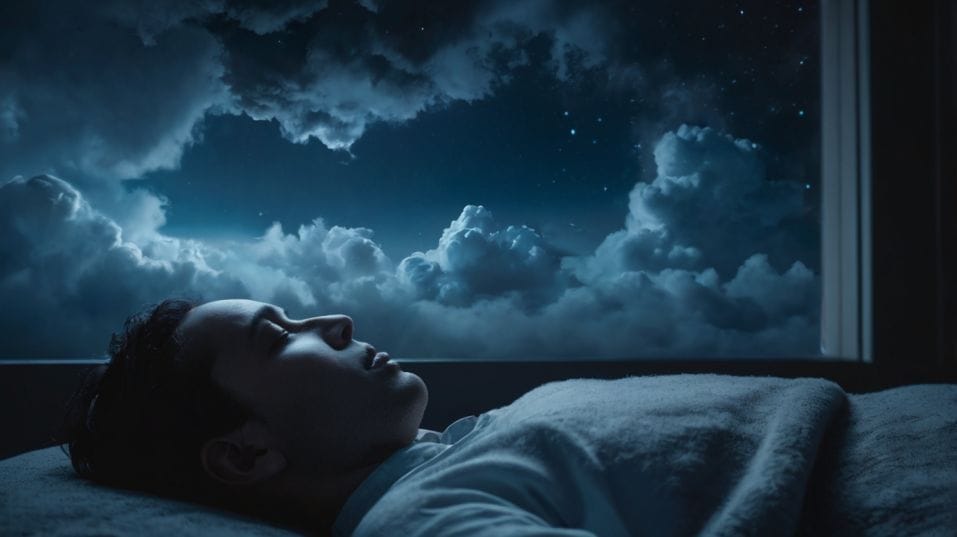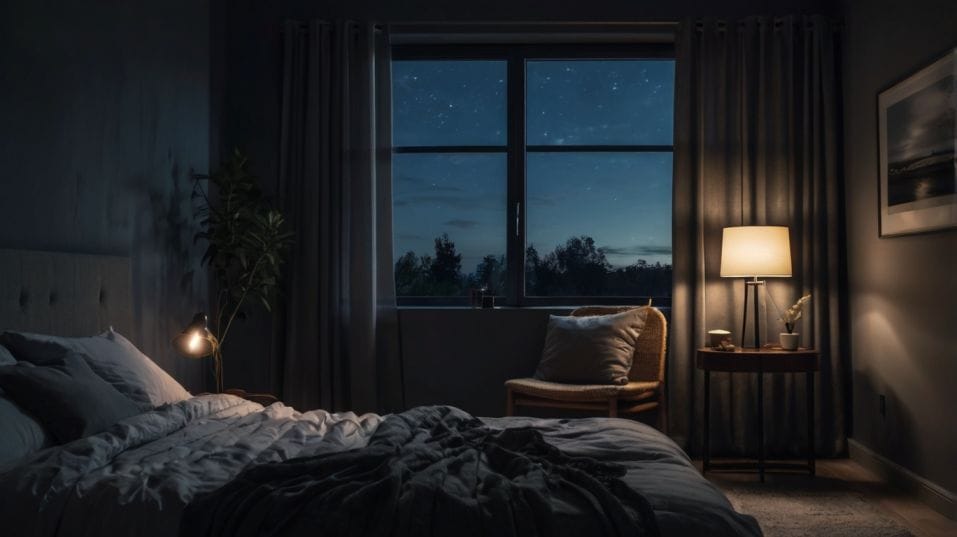Can Lack of Sleep Really Cause Anxiety?
Discover how poor sleep triggers anxiety—and how small, science-backed shifts can calm your mind and reset your nervous system fast.

Ever felt anxious for no clear reason—like your brain’s racing but your body’s drained? It might not be "just stress." It could be sleep. Poor rest doesn’t just leave you tired—it rewires your brain’s ability to stay calm and focused.
And the good news? That makes it fixable. If you’re new to better sleep habits or curious how sleep shapes your mental state, you’re in the right place. Let’s unpack how one night can shift your whole mood.a
How Sleep Shapes Your Mental State—Literally
Sleep isn’t downtime. It’s not just about recharging. It’s when your brain rebalances, processes emotion, and resets your stress response.
Without enough of it, your nervous system starts to overreact to everyday stuff—traffic, texts, to-do lists. Your brain treats normal input like a threat.
Here’s what happens under the hood:
- Amygdala Overdrive: The amygdala is your fear and emotion center. Sleep loss makes it hyperactive—up to 60% more reactive, according to fMRI studies. So you wake up and suddenly, that small inconvenience feels catastrophic.
- Prefrontal Cortex Shutdown: This is the logical, executive function zone of your brain. After a night of poor sleep, it goes quiet. You can’t reason your way out of spiraling thoughts. Everything feels more intense, less manageable.
- Cortisol Spikes: Your stress hormone goes haywire. Morning cortisol is normal. But chronic sleep debt makes it stay high all day. Your body’s on edge, even when there’s nothing going on.

Researchers at UC Berkeley even found that a single sleepless night increases anxiety levels by over 30%. That’s not mild stress—that’s your nervous system stuck in overdrive.
How Anxiety Keeps You Awake—And What to Do About It
Here’s the kicker: anxiety doesn’t just result from sleep loss. It causes more of it. This vicious cycle turns one restless night into a streak.
You go to bed tense, your mind races, your body never settles. The result? You stay up later, wake up more, and feel even more fried the next day. But this is a loop you can break—without overhauling your entire life.
1. Stop Trying to “Force” Sleep
The harder you try to sleep, the more elusive it gets. Anxiety thrives on control and hyper-awareness.
So instead of chasing perfect sleep, focus on creating the right conditions. Think: light, temperature, timing, and wind-down cues—not effort or willpower.
Start with your environment. Aim for total darkness—no streetlights, no glowing chargers. If blackout curtains feel like overkill, try an eye mask and unplug any unnecessary light sources.
Then set your room temp to about 65°F (18°C). Your core temperature needs to drop slightly for your body to fall into deep sleep. Too warm, and your brain stays in “alert” mode.
2. Build a Wind-Down Buffer
The hour before bed needs to feel like a deceleration. Not a cliff drop. Your brain doesn’t flip from full-speed to stillness. You need a buffer zone—a short stretch where you’re awake, but slowing down.
Here’s what that could look like:
- Low light only. Lamps, not overheads. No bright screens.
- A hot shower or bath. It cools you down after, helping sleep kick in.
- A simple signal—like brushing your teeth, stretching, or reading something not on a screen—that tells your body, “we’re closing up shop.”
No need for a rigid ritual. Just consistency. You want to create predictable signals that train your nervous system to respond with calm.
3. Reset Your Caffeine and Light Exposure
You don’t need to ditch coffee. You just need to time it better. Caffeine has a half-life of 5–8 hours, which means even that innocent 2 p.m. latte is still buzzing in your bloodstream at 10 p.m.
Cut it off by early afternoon, and you'll notice your wind-down process gets way easier.
Pair this with bright light in the morning and dim light at night, and you’ve just reset your circadian rhythm—your body’s built-in clock that governs everything from alertness to digestion to sleep quality.
If your mornings are dim or indoor, step outside for 10 minutes after waking. Morning light slaps your brain awake and starts the countdown for your melatonin release that night.
Train Your Brain to Expect Sleep
The more regular your sleep schedule, the easier sleep gets. Your brain craves rhythm. That doesn’t mean you have to wake up at 6 a.m. on weekends, but it does mean giving your system a window it can predict.
Go to bed around the same time. Wake up around the same time. Even just anchoring your wake-up time makes a difference. It syncs your internal clock, regulates hormones, and makes falling asleep feel less like guesswork.
And if you can’t fall asleep right away? Get up. Do something calm in low light. Don’t stay in bed staring at the ceiling. You want your brain to associate your bed with sleep, not stress.
You Don’t Need a Perfect Night—You Just Need a Better Pattern
Real-world sleep isn’t flawless. Life happens. But improving sleep—and reducing anxiety—is less about perfection and more about momentum.
When you sleep better:
- You bounce back faster from stress.
- Your thoughts feel less chaotic.
- You focus easier.
- You feel more emotionally level, even when the day throws curveballs.
This isn’t a maybe—it’s measurable. Sleep helps regulate your HPA axis (the part of your body that controls stress hormones). It strengthens your emotional regulation circuits. It literally builds mental resilience, one night at a time.
Final Thoughts
So yes—lack of sleep really can cause anxiety. But more importantly, better sleep can undo it. You don’t need expensive supplements or apps.
You need a few smart shifts—light in the morning, dark at night, cooler rooms, and a little less chaos before bed. You can start that tonight. Not next week. Not when life gets less busy. Now.
Because when you sleep better, you live better. You show up sharper. Calmer. More in control of your day—and your mind.
Start tonight. Dim the lights. Ditch the late caffeine. Give your body the signal it’s been waiting for. Let sleep do the heavy lifting.




